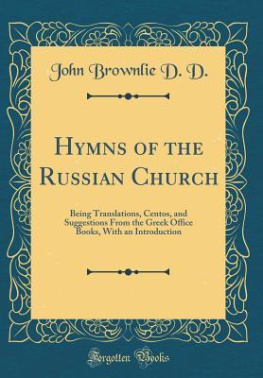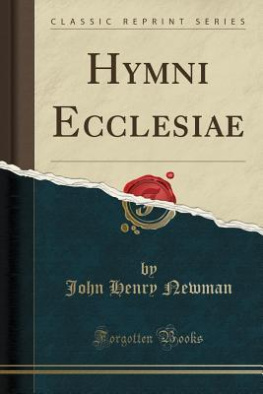USURY:
OR
Interest, Premium and Discount.
A LECTURE
DELIVERED BEFORE THE STUDENTS OF
CRITTENDENS PHILADELPHIA COMMERCIAL COLLEGE,
BY
S. H. CRITTENDEN, Attorney at Law ,
PRINCIPAL.
Our subject to-day is Usury .
We will first speak of this subject in its direct relation to Book-Keeping. That is, as to its treatment under different forms, on the Ledger, since this is in reality the phase in which it is of most importance for us to consider it. Afterwards we will glance at the matter in the view of utility, economy and legality.
The ledger titles which embrace this subject, are Interest, Discount and Premium. These are all often, and indeed generally, embodied in one account, headed Interest, yet they are radically different divisions of the account, both in their nature and manner of computation; although all tending to one point, when placed upon the merchants books, viz: to add to his total gains or losses.
McCullocks Commercial Dictionary has the following definitions of Interest and Discount:
Interest, is the sum paid by the borrower of a sum of money, or of any sort of valuable produce, to the lender, for its use.
Discount, is an allowance made on account of an immediate advance of a sum of money, not due till some future period.
Premium, according to Websters Dictionary, is a bounty, or something offered or given for the loan of money, usually a sum beyond the interest.
These definitions, though not full, will yet serve as a foundation on which to construct an explanation that may make these terms more easy of comprehension. You perceive that in order to apply the definition of Interest, which I have quoted, we must look upon every person who is indebted to another, as a borrower; that is, as having in his possession, certain property which belongs of right to that other person; and for retaining the use of which he must pay him an equivalent. If you consider in this light all transactions in which Interest is demanded and paid, this portion of the subject will perhaps be sufficiently plain without additional comment.
It is in relation to the second division of the account that most confusion usually arises. There are not less than three distinct transactions, which are all included in the usual language of business men, under the single term Discount. They are:
1st. When a deduction is made for payment of a note or account before due; 2d. When a per centage is taken off from a sale, in consideration of ready money; 3d. When money is remitted from one country to another, at an additional expense or at a loss.
If at an expense, it is sometimes called Premium.
For illustration, under the 1st division; suppose A holds a note against B for $500 due in four months, and B comes to-day and proffers payment; the custom is, for A to deduct the interest on $500 for four months, from the face of the note; and to accept the balance as payment in full: thus considering the use of the remainder of the amount, sufficient to compensate for the deficiency in the payment of the face of the bill. But this is manifestly incorrect, if we take the existing law of this State, which declares the value of the money to be but six per cent. per annum, to be founded on just principles. For the interest on the remainder of the note, after deducting the interest on the face of the note therefrom, is not sufficient at the same rate per cent. to make up the original sum. So that B, by paying thus in advance, secures a larger rate of interest than is lawful. Yet this is the usage, and it is an old adage, and well established, that usage makes law. This is what is termed Bank Discount. True Discount, is such a sum, as, when deducted from the original debt, the interest on the balance will just equal the amount deducted. The method of ascertaining this is by proportion, or, as it is called in arithmetics, rule of three. Thus we would say, as the amount of $100. and interest for the given time and rate is to the interest on $100. for the same time and rate, so is the total sum to the amount of discount to be deducted therefrom. Stated thus, 102.00 : 2.00 :: 500.00 : the answer.
2d. If C sells goods to D and within a certain limited time, usually among the jobbing trade of our city 30 days after purchase, D pays for them in cash, usage again allows him a deduction from the face of the invoice of say 5 per cent. This is also called Discount, but it is not properly such. For it is only a deduction of such a proportion or per centage of the bill, on fulfillment of certain conditions; while Discount is reckoned with reference to time to run, as well as rate per cent.; in fine, Discount is simple Interest paid beforehand.
3d. The term Discount is also applied to that sum which is advanced beyond or deducted from the amount of a debt, in remitting money from one country to another.
Thus, if I wish to remit a sum of money to any foreign country, it is needful for me to ascertain what is the difference of valuation at the present time between money of the denominations used and ordinarily obtainable here, and those in the country to which the remittance is to be made. This valuation I suppose you all understand is a merely arbitrary one, fixed at the will of the supreme power in any State, and varying according to circumstances and the ideas of the law makers. If, for instance, owing to the different amounts of alloy used in coining pieces of corresponding value in different countries, there is say 5 per cent. more precious metal in the coin of that country to which I wish to remit than in that of our own country, I must necessarily pay this difference in addition to the original sum, in order to render the account of my correspondent good according to the valuation in his country. If on the other hand the intrinsic value of our coin is 5 per cent. the greater, then one hundred dollars of our coin will pay one hundred and five dollars of the other.
The proper term for this is Exchange, and if this name were universally adopted, there would be far less of confusion in the ideas associated with such transactions, in the minds of most persons.
We will now turn to a consideration of the peculiar nature of Interest, or more properly Usury, and the reasons assigned for a limitation of its rate by law. Formerly, the amount received in payment for the loan of capital, was denominated Usury; that is to say, rent for its use and enjoyment.
This is the correct term, for Interest is only the rent, or price paid for the enjoyment of an object of value.
But this word has acquired an odious meaning, and is now understood to express an illegal and oppressive rate of interest only, the milder but less expressive term being substituted by common usage.
In earlier times, before the advantage and utility of a reserve capital was known and appreciated, the demand of a rent for its use by lenders, was looked upon as an abuse of power, and an oppression towards the needy. And, more still, it seems from the accounts handed down to us by the writers of those days, that even that frugality, without which capital cannot be amassed, was looked upon as parsimony, and deemed a public injury, by the populace, who looked upon all sums not spent by the great proprietors, as lost to themselves. They could not comprehend that money laid by, as a capital for some profitable employment, was to all intents equally spent; and that to in a way far more beneficial to the poor. For a laboring man is never sure of earning a subsistence save where there is a capital in reserve for him to work upon. This inability to understand its use gave rise to strong prejudice against rich individuals, who do not spend their whole income as it comes in; such a feeling still exists to a great extent: formerly it was universal. Lenders themselves were infected by it, and were so much ashamed of the part they were acting as to employ the most disreputable agents in the collection of profits perfectly just, and highly useful to society.












